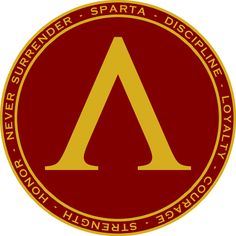Around 800 B.C.E., the Greek people were emerging as an Aegean power because of the growth of their many urban centers: city-states called poleis. These poleis functioned as principle centers for Greek societies. They varied in their political views and cultural practices from one another. One of the most important of the Greek city-states was the polis of Sparta.
Sparta was a part of a region called Laconia, which was located on the fertile peninsula in Greece called the Peloponnese. Although the Spartans were landlocked, they had the ability to use the Gyethio harbor when needed, along with the Evrotas River as a source of fresh water. Spartans had neighbors called helots, who were the descendants of the earlier Greek immigrants to Laconia. The helots were defeated by the Spartans, and were forced to serve as slaves to the Spartan community, and were not recognized as equal members of the Spartan society. Another group of people who were living within the Spartan society were called the Perioeci people. Their name translates to dwellers around, and they worked as traders and craftsman in the community, but were not citizens of the land of Sparta either. The Spartan exploitation of the helots allowed them to live a lifestyle of simplicity, frugality, and austerity. From this lifestyle, the Spartans were able to create an educational system they called the Agoge.1

The Agoge was characterized by the way Spartans raised their children and how they educated them. Their educational system emphasized physical education, warfare, and how to survive as a warrior. This was the toughest test one could face at the time because the Spartan army was well known all throughout Greece as having the most fearless and toughest fighting men in the world. Before a male child went through the hardships of the educational system, the child faced his first test at birth. Once the child was born it would be bathed in wine to determine if the baby would be strong enough to go through the hardships of becoming a Spartan warrior.2 Once the child survived, the elders who ruled Sparta would examine the baby for any birth defects or any blemishes that the baby might have. If the baby did not survive the wine bath or the Elder assessment, the baby was sent down to Mount Taygetos to perish.

If one were born a male, one would be raised mainly by one’s mother until reaching the age of seven. Boys were then sent to military training, or the Agoge. They were forced to learn to survive on their own, create their own meals, and learn to fight in the worst of conditions. During the Agoge, young Spartans would learn to overcome their fears by never showing weakness and trusting only a Spartan. The boys would also dine and be exposed to the lifestyle of a Spartan soldier and learn how to conduct oneself as a Spartan solider in society.3 By the age of twenty, males were encouraged to marry and have children. In order to fulfill this expectation of creating a family, the young soldiers were forced to sneak out of their barracks and return to the city to see the females. The young soldiers had to sneak out because their Agoge camp was away from the city and the trainees had to remain there until their training was completed.
By this age the soldiers were showing promise to their elders. The elders would let them start their membership to the syssitia, or clubs that had to do with dining hall messes and social religious groups within the city. The syssitias were already established through the army. The boys were placed or drafted into these different syssitias. Once placed into their syssitias, the boys would finish their training in these syssistias and learn how their new unit contributed to Spartan society. However, Spartan men were not considered or thought of as citizens until they reached the age of thirty. Once they were thirty, the trainees would become a full time soldier and full-membered citizens. Once this happened, they were allowed to participate in their new syssitia. It was an honor to participate in the mess hall because it shows that one was strong enough to provide for one’s family and for the community. Also, one belonged to a troop and had rank within the society. Even though they were seen as equals within the community, the men were not yet allowed to sleep with their wives overnight. The men were forced to sleep in quarters that housed each different syssitia. Now as an active soldier and equal in society, one served the Spartan army until the age of sixty.4 By the age of sixty, Spartans focused on their family and helped groom other young men that were in the process of becoming Spartan warriors. When serving the Sparta military, they held to the motto to come back victorious or die trying to be.
Although Sparta was a small polis within Greece, it was still able to be a prosperous and feared power in Greece. The Sparta population was about fifty to sixty thousand, which included the helots and Perioeci people. The Spartans only made up about fifteen thousand of that sixty thousand population. They were outnumbered sixteen to one, but were able to maintain order and peace through their strong and feared soldiers. This characteristic was admired by other city-states within Greece, many of whom took that admiration to forms of imitation. These traits that the Spartans would show and live by would eventually be copied or altered by others for a way of living or a way to build a strong army.
- Stephen Hodkinson, Anton Powell, and Jacqueline Christien, Sparta & War (Classical Press of Wales, 2006), 56-62, 102-126. ↵
- Maurice Pope, “Spartan details of daily life,” Times Higher Education Supplement no. 1626 (2004): 35. ↵
- John Buckler, Aegean Greece in the Fourth Century BC (Boston: Brill, 2003), 187-195, 203-210, 228-231. ↵
- Anton Powell, Athens and Sparta: Constructing Greek Political and Social History from 478 BC (Routledge, 2016), 78-93, 147-158, 303-331. ↵



51 comments
Luke Lopez
This was a very interesting article on the Spartans, and how they began military training at the age of seven. I did not know that the Spartans would test newborns by forcing them to bath in wine for the purpose of seeing if they would be strong enough to become a Spartan warrior. Even though the Spartans were outnumbered in Greece, they were still an army to be reckoned with. This was a very well-written article.
Steven Hale
I think this article does a great job showing how the Spartan military became so special. Not only did the warriors begin training at a young age, but they trained for so long too. And once they were considered soldiers at age 30, they still had another 30 years to serve in the military, ensuring that at any battle, many of the soldiers would be experienced and proficient veterans.
Esperanza Rojas
I always loved this area and this concept, the Spartans. I found it so crazy that they were entered so young but when I really thought about it, we send our own children through the same thing, which is military school. I found this article very interesting, for the fact that it went deeper into the training of a Spartan, whereas most people are always interested in the raising of the Romans Gladiators.
Jabnel Ibarra
The Spartan tradition of raising children reminded me a lot of our modern traditional education system in the way it was structured. Children are taught beginning at a very young age and begin to specialize as they grow older, only today that education is focused on intellect rather than strength and combat. I wonder if so much emphasis on strength was beneficial to them in the long run, however. The might of the Spartan army was unparalleled, but what does their society have to offer history besides military strategy and organization?
Annissa Noblejas
The presence of two outside peoples to carry the burden of other occupations, all Spartan men were warriors. Full culture devotion to warfare inadvertently restricted their population and therefore potential standing army. Men were highly restricted from mating opportunities though segregation in decades long training camps. Their ethos in battle was unparalleled to be sure, but single-minded devotion has its handicap.
Antonio Rodriguez
Before reading this article I have had a little bit of knowledge about how fearless and powerful Spartans were. But by reading this article it gives me a lot of clarification on why they are so fierce. I think its crazy to even imagine how they were judged to see if they were a warrior or not starting from the time they came out of the womb by them bathing in wine. Then if you passed the bathing of the wine then that means you were put through all the test to becoming a true Spartan warrior.
Vanessa Tombo
This article was very refreshing to read because we are currently talking about the Spartan Warriors in class. The article gave very well structured description of the warrior’s way of life from birth. The Spartans were very ferocious warrior who had been conditioned from a young age to fight for Spartan and to die with honor on the battlefield. Over all a great article.
Constancia Tijerina
Before reading this article, I have had some prior knowledge of who exactly who the Spartans were, and the author most definitely lived up to the hype and research of how amazing these warriors were trained and how they were used. One of the points that gave me my attention was how the Spartans had dunked the babies in wine and that somehow tested their strength Overall, this article was very intriguing and just such a good read for any reader who comes across this article!
Hector Garcia
The Spartans might have had the best and most powerful army in the whole Aegean Sea. It also amazes me that despite all odds, the Spartans manage to the control the helot population, which outnumbered the Spartans sixteen to one. Another astonishing part was the attention to detail to what a male Spartan had to go through. The only thing that might be missing would be the average life of female Spartan. Although they didn’t play a critical role in Sparta, I am curious to see how they lived.
Samuel Ruiz
While reading this article, I kept hearing in my mind “This is Sparta!” This was something I would hear people say a few years ago that I am guessing was from a movie or something. It was funny to think about because this article would be the second time I hear of Spartans. What surprised me the most was that babies were bathed in wine to test for their strength in becoming a Spartan warrior. Great article!